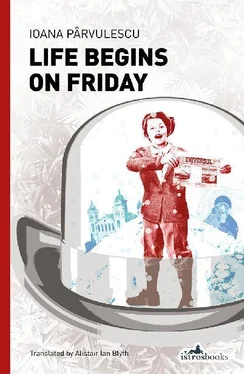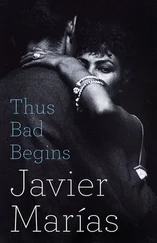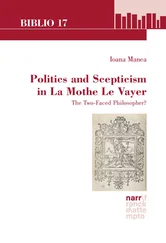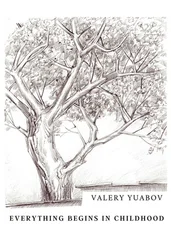He looked at Alexandru, who shrugged at his brother, over the top of the stranger’s head — he was unable to make any introductions, since he had forgotten to ask the stranger his name. The man opened his eyes, which he had been keeping clenched, and said faintly: ‘Dan Crețu.’
The brothers looked at each other in amazement, and Alexandru felt the sky was crashing down on his head. This was all he needed!
‘You have met my brother Alexandru, and I am Mihai Livizeanu.’ He continued with the positive disposition and confidence which, as he had learned, were part of a good physician’s obligations: ‘You are lucky, Mr Crețu. It can be pushed back into the socket, but it will be painful. We give you permission to scream. I learned in Paris how it is done, but I have never had occasion to try it. I am delighted to do so now. There are many methods and I shall employ the simplest… Alexandru, be so kind as to fetch a large glass of cognac for your patient.’
The lock of hair that fell cheekily over his forehead was the only detail about Mișu Livizeanu that contrasted his cold seriousness. He went to wash his hand and returned to find Dan drinking the cognac, grimacing, although it was the finest Courvoisier; Napoleon himself, had he still lived, would not have been so finicky. Then, they laid Dan in Alexandru’s bed. Mișu felt the place and without warning, pushed the bone back into the socket, with an abrupt, powerful shove. There was a clicking sound. Dan screamed, then moved his shoulder gently and felt only the trace of an old pain, but no new pain. They tightly bound the shoulder with a bandage and the physician told him that he should try to move it as little as possible. If he were careful, there would be no need for plaster.
Returning to the hôtel late in the evening, Otto discovered that he had nobody to chatter to, although he had been dying to recount how he had passed the day and what he had managed to find out. Otto was garrulous, and at home in Transylvania he had always had a brother or an aunt or a neighbour to listen to him. The few items laid carefully on his room-mate’s bed, tied with a bow, were an indication that he had not left the hôtel and that some good person was concerned about the stranger’s fate. Otto stripped and washed himself thoroughly, before getting into bed. He was exhausted and it seemed to him that the smell of insect powder seemed to be stronger than the day before.
He had worn out the soles of his boots and lost a seg from the heel while walking from church to church to ask whether there was work and where he could earn some money, but everywhere he had received the same answer: work begins in July, in June at the earliest, and nobody starts renovations in the winter. But even a barnyard hen could have told him that! For the time being, Otto would have to make do with what was on offer at the hôtel. He took a cart to the nunnery at Pasărea. Thence he was sent to the monastery at Cernica, some ten kilometres away. A beautiful gypsy girl, with a sulky mien, who hoped to scrounge some pennies from him, on hearing where the nuns had sent him asked the abbess, her eyes glittering in amazement: ‘Why do you live here when your husbands live ten kilometres away?’
He had travelled all that way, sometimes on foot, sometimes in a cart, sometimes on the horse-drawn tram, alles umsonst , for nothing. But he had discovered something worth sharing and he felt sorry that the silent man, who had been so happy to listen to his stories these past few days, was not there. In all the places he visited, he had heard a rumour which, it would seem, currently preoccupied all the ecclesiastical authorities: a miracle-working icon had been lost, a priceless treasure, brought some ten years ago from a cathedral in the centre of town, which had been demolished. The icon, if he understood rightly, had been in the care of a bishop for a while, a bishop who had been caught up in a scandal a year previously and dismissed from his post. The bishop had secretly entrusted it to an abbot who had in the meantime passed away, and the icon had then disappeared without trace. It was hugely valuable because it had two large diamonds on the golden shoulders. Closing his eyes, Otto pictured the icon and imagined discovering it hidden in a wall while he was restoring a church. Through his mind, now only half awake, filed a host of archangels with slender legs, wearing gowns and carrying shields, angels with tumbling curly locks, and saints with yellow skullcaps. He had seen them all before, but he could not remember where exactly. Soon, the saints were swept away by the waters of a river, and the valet walking down the corridor in that moment heard a snore from the room that the stranger Dan Crețu shared with the church restorer from Transylvania. But Mr Dan Crețu had not returned to the hôtel that day.
Saturday, 27 December: Visiting
The day began badly, with a fog so thick that I could not even see the birch tree in front of my window. I thought about what it would be like if it were the other way around: every day fog so thick that you could not see other people, and clear air only on one or two special days a year, as if an unseen hand had wiped clean the milky, opaque window of the sky. What joy people would feel just to be able to see, what a miracle the transparent, colourless air would seem to them. As it is, nobody delights in the air and they do not even realize what an extraordinary thing it is to be able to see far into the distance, all the way to the horizon. Mama helped me to wash my hair, because since we gave up most of our servants, to make savings (we have kept on only the cook, with her mind stuffed full of superstitions, Safta and the frail, constantly ill Nelu), we have both helped one another. But it is not the washing the that is the hardest, but the drying. You cannot sit too close to the hearth. In school they have always told us of cases of girls whose hair has caught fire in that awful way.
I have made progress with Vanity Fair . Last night I finished Chapter lix and I cannot even begin to describe how greatly I was irritated by the way in which Major Williams pleads: ‘Only let me stay near you and see you often!’ It irritated me because I might have done the same. It was not the awful way in which Amelia treats the poor Major that disgusted me, the way she lets him desire her exactly like a cake he knows he will never have, but his lack of pride, so similar to mine. But I do not act like that prude Amelia, I do not allow for equivocation, and I am glad that things have been cleared up with Mr Costache, although I feel dreadfully sorry that such a simple thing became so complicated and oppressive. I do not know how I will be able to face him again. Mama and Papa asked me nothing, but Mama said something bad about Alexandru and that she did not trust him — she said it so that I would overhear. That made me feel even more guilty at not having told them about inviting him here this afternoon, when they will both be going with Jacques to visit Dr Rizea, who operated on my brother two years ago. The doctor saved him, but it is hard for me to see him, because it reminds me of all the terror I felt at that time. On the other hand, dear Jacques loves him greatly, and he told me just now that he would be taking his flute with him to play Handel’s minuet for the doctor.
But perhaps Mr Livizeanu will not come, who knows… I do not understand the words that Nicu told me: ‘green and red.’ We shall see! Papa has started mentioning money more and more often, although he has never done so hitherto. Are we really in such a difficult situation? I ought to marry an old millionaire and rid the whole Margulis family of their money worries, which, although they do not mar our cheerfulness, are like a rain cloud in a blue sky. How might I find Nicu? An amusing thought occurred to me: only Nicu would know how to tell me where to find Nicu!
Читать дальше












